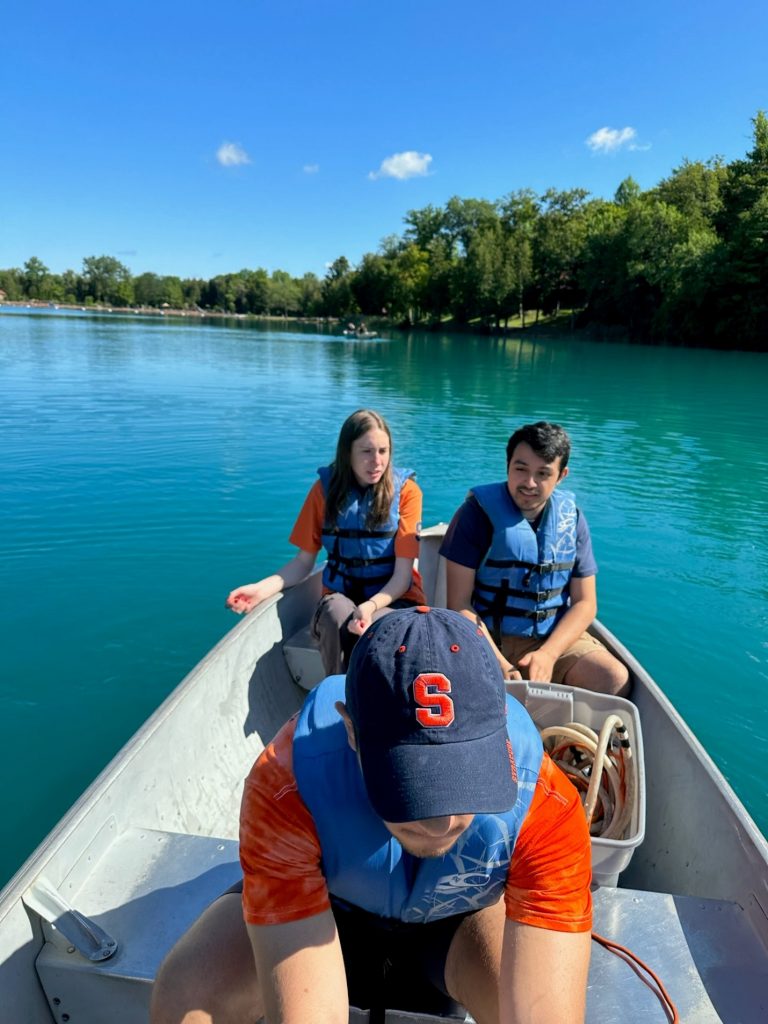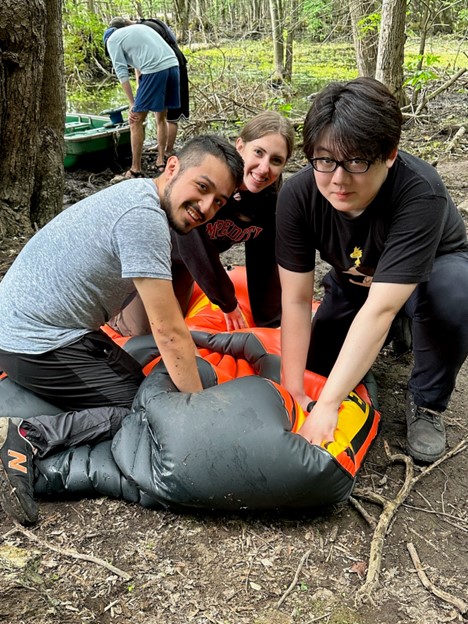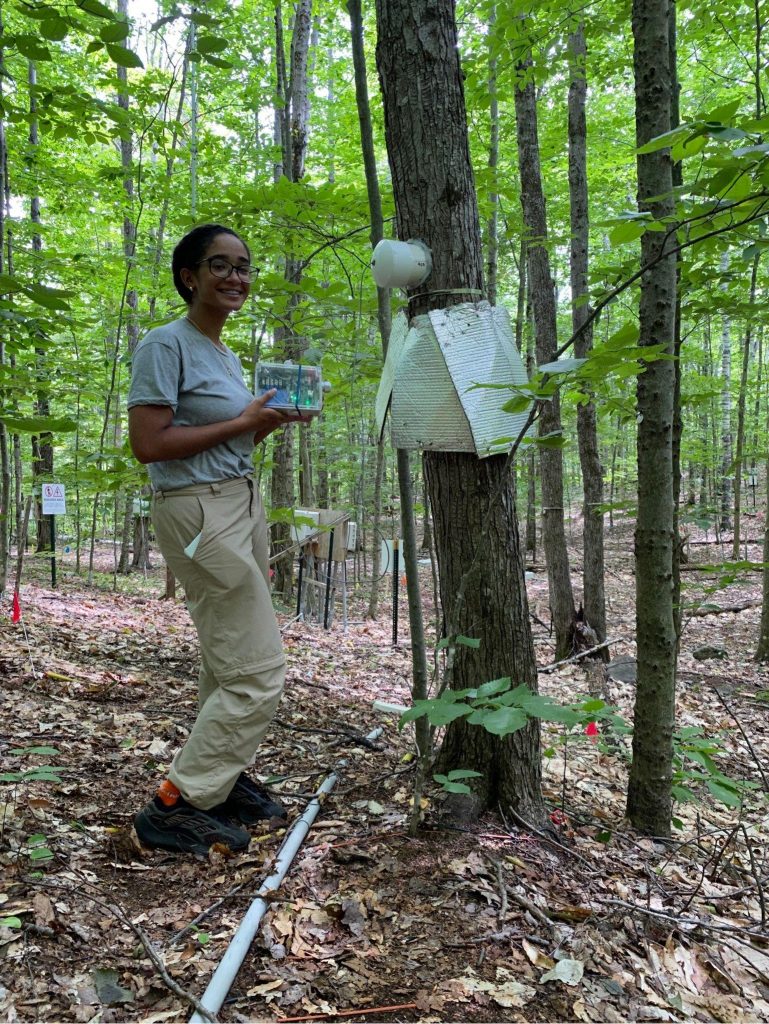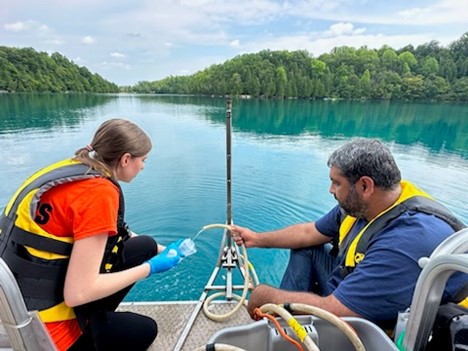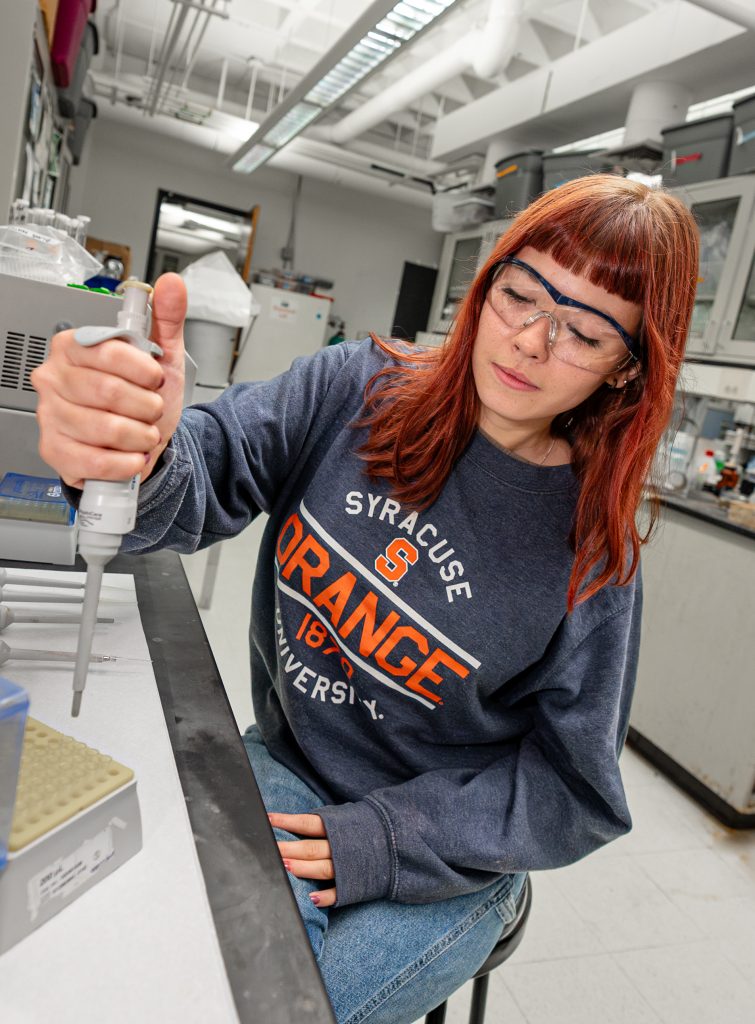
The Syracuse University Center for Environmental Systems Engineering (CESE) laboratories are used for biogeochemical research (http://www.ecs.syr.edu/Centers/CESE/). The CESE includes 22,000 ft2 of core and individual laboratories, furnished with sophisticated equipment required for environmental research and have been designed with versatility required for interdisciplinary activities. Facilities allow for the characterization/analysis of the biogeochemistry and geochemistry of terrestrial and aquatic ecosystems, microbial characterization, soil/sediment processing, organic analytical, inorganic analytical, trace metal processing and analysis, and a state-of-the-art, Class 1,000 clean room. In addition to standard laboratory equipment, major CESE equipment include: atomic absorption spectrometer with graphite furnace; ion chromatographs; autoanalyzers; an inductively coupled plasma mass spectrometer; dissolved inorganic/organic carbon analyzers; two total mercury analyzers; dissolved mercury analyzer; methyl mercury analysis system; dissolved nitrogen analyzer; automatic titrators; gas chromatographs; high pressure liquid chromatography; CN analyzer for particulate/soil measurements; UV/visible spectrophotometers; polymerase chain reaction instrumentation; electrophoresis apparatus; freeze drying facilities; liquid chromatograph/mass spectrometer system; gas chromatograph/mass spectrometer system. a steady-state fluorescence spectrofluorometer; a benchtop xenon tester; an anaerobic chamber; a total nitrosamine analyzer; a rotary evaporator; and a LTQ-Orbitrap XL high-resolution mass spectrometer.
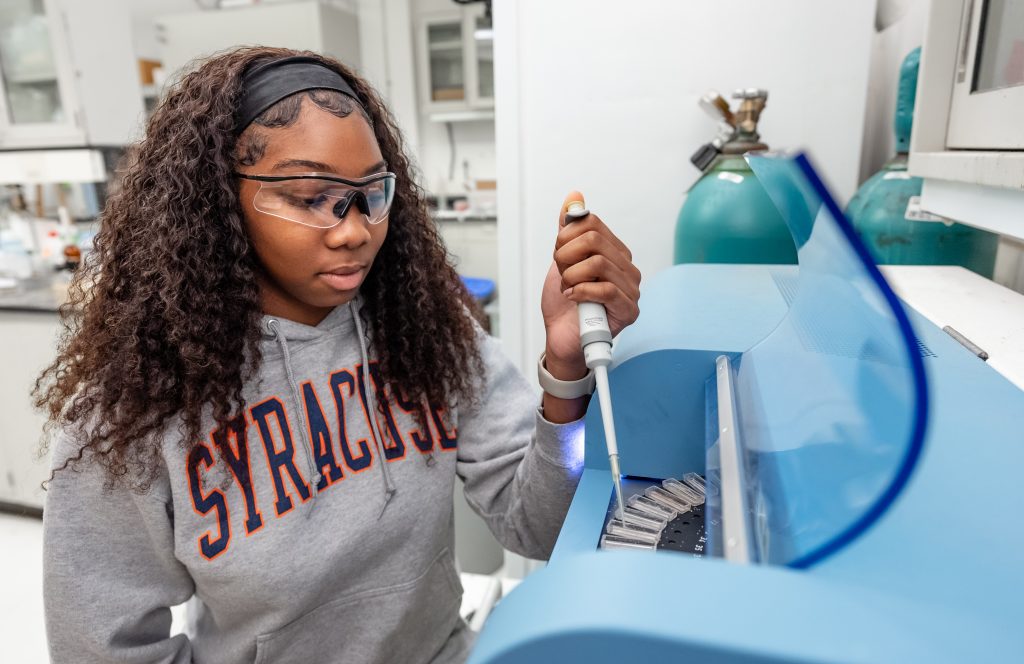
Field equipment includes a Doppler particle velocimeter for stream gauging; several autonomous submersible pressure/temperature sensors; field augers and piezometers; soil coring and sampling equipment; and multi-parameter submersible sondes equipped with sensors for pH, temperature, fluorescent dissolved organic matter, turbidity, and conductance; mobile evapotranspiration rig; 3-D scanning laser; high resolution thermal camera; a suite of automated and manual infiltration measurement devices; and more than 100 Arduino type microloggers, solar panels and associated sensor packaged designed for environmental monitoring and measurement.
Syracuse Information Technology & Services (ITS) establishes and maintains a high speed network; internet service; public computer labs; and “smart technology” classrooms. Application servers host a full suite of productivity software and over 120 discipline specific software packages. ITS is on a three to four year replacement rotation for their machines so that all available hardware is reasonably modern and fast. In addition, Syracuse University facilities include the “Green Data Center” built in collaboration with IBM and New York State. This, 12,000-square-foot facility contains specially configured infrastructure space for a power plant, including mechanical and electrical equipment to run the building, and 6,000 square feet of primary raised-floor data center space for computers and servers.
